Harlem, Heyer, Henry: What I Read in January 2025
I set my reading intentions for the year a little late. It was only in the final week of January that I decided I wanted to try and read 120 books in 2025, with at least one a month each of non-fiction and literary fiction. Thus, I managed the former before the month was over, but not the latter — I'm working on that for February.
Otherwise, it was a good month of reading for me. I tried several new-to-me authors and had good experiences. Even the one book I didn't like wasn't so bad that I couldn't finish it. And I fulfilled my objective of reading mostly physical books that I already owned.
The books listed below are ones that I read in their entirety, either for pleasure, for a book club, or as part of a longer-term project. I skim a lot of others or read portions of them as I'm working on articles and podcast scripts, but I'm not counting those as fully "read". I'm presenting them in the order I read them throughout the month. If you'd like to see previous posts in this series, they're available here.

Whispers Under Ground by Ben Aaronovitch
Continuing my audiobook habit of "Background Ben" instead of scary news podcasts, I listened to the third novel in the Rivers of London series. I've always been keen on London Underground history and trivia, so having a whole story built around that along with some Aaronovitch's magical elements that he's fleshing out very well by this point in the series was enjoyable. I continue to think that Kobna Holdbrook-Smith is one of the most talented readers I've ever heard — he does separate voices for each character while at the same time maintaining a clear sense of the first-person narrator's personality and impressions.

Soulless by Gail Carriger
This was a recommendation from my podcast production assistant, Leandra, with whom I had been discussing my disappointing experience in December reading a fairy novel set in the Regency era. Soulless is Victorian in atmosphere, combining elements of fantasy in the form of a society that includes werewolves, vampires and people like the heroine who lack a full soul. A promising premise, given my burgeoning interest in historical fantasy, but one that didn't deliver for me. I found the central character — a parasol-wielding spinster — far too "sprightly" for my taste, and I simply didn't care enough about the various werewolf and vampire problems to follow them closely. By the last third of the novel, I was skimming to get it over with. I believe there are sequels to this and manga adaptations, but I won't be seeking them out.
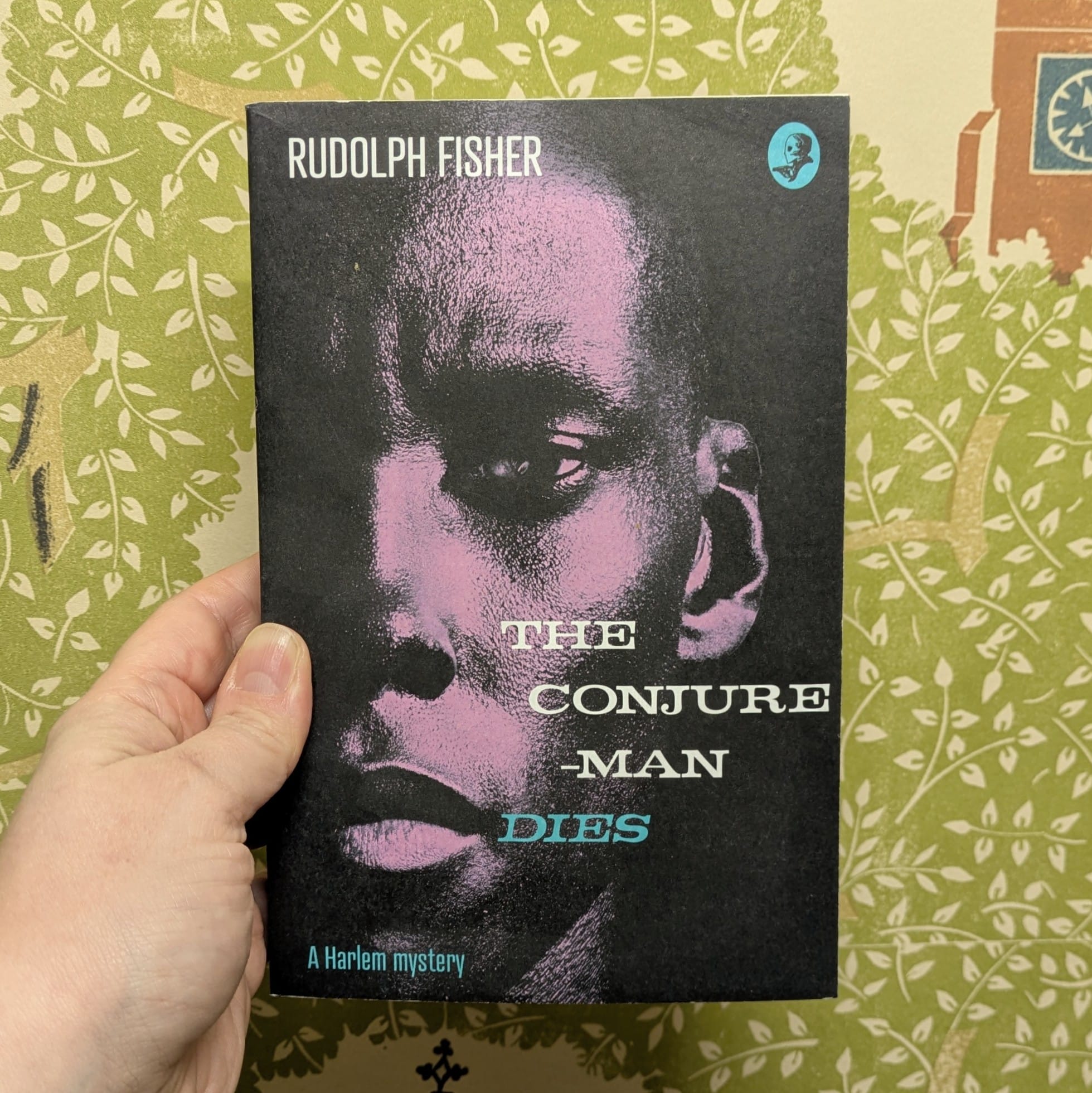
The Conjure-Man Dies by Rudolph Fisher
This is the Shedunnit Book Club's book for February, which I read ahead so I could make the podcast episode about it. Rudolph Fisher was both a doctor and a writer in early 20th-century New York City, with his literary work bringing him in contact with the Harlem Renaissance. In 1932, he published this, his only crime novel, which is set in Harlem and vividly evokes the atmosphere of the neighbourhood. It features a cast of interesting and varied Black characters — as far as I know, the only mystery from the interwar crime fiction "golden age" to do so.
I found this to be a good read, balancing Fisher's obvious interest in the work of John Dickson Carr and Arthur Conan Doyle with his keen observational eye for the society in which he lived. He also brought in his medical expertise to good effect, including a doctor character as the police detective's sidekick and using some lab tests as plot points. According to the postscript in my edition, Fisher had planned out at least three more novels starring his Harlem detecting duo, but he sadly died in 1934 at the age of 37 without having the chance to write them.
I say this all the time on Shedunnit: one of the main pleasures of reading detective fiction from this period for me is the chance to learn about the social habits and conventions that seemed significant to a writer at the time, rather than those rated by a historian looking back with hindsight. This is an excellent novel for learning about how race, economic pressures and political reforms intersected in New York in the early 1930s, from the pen of a funny and erudite Black writer.
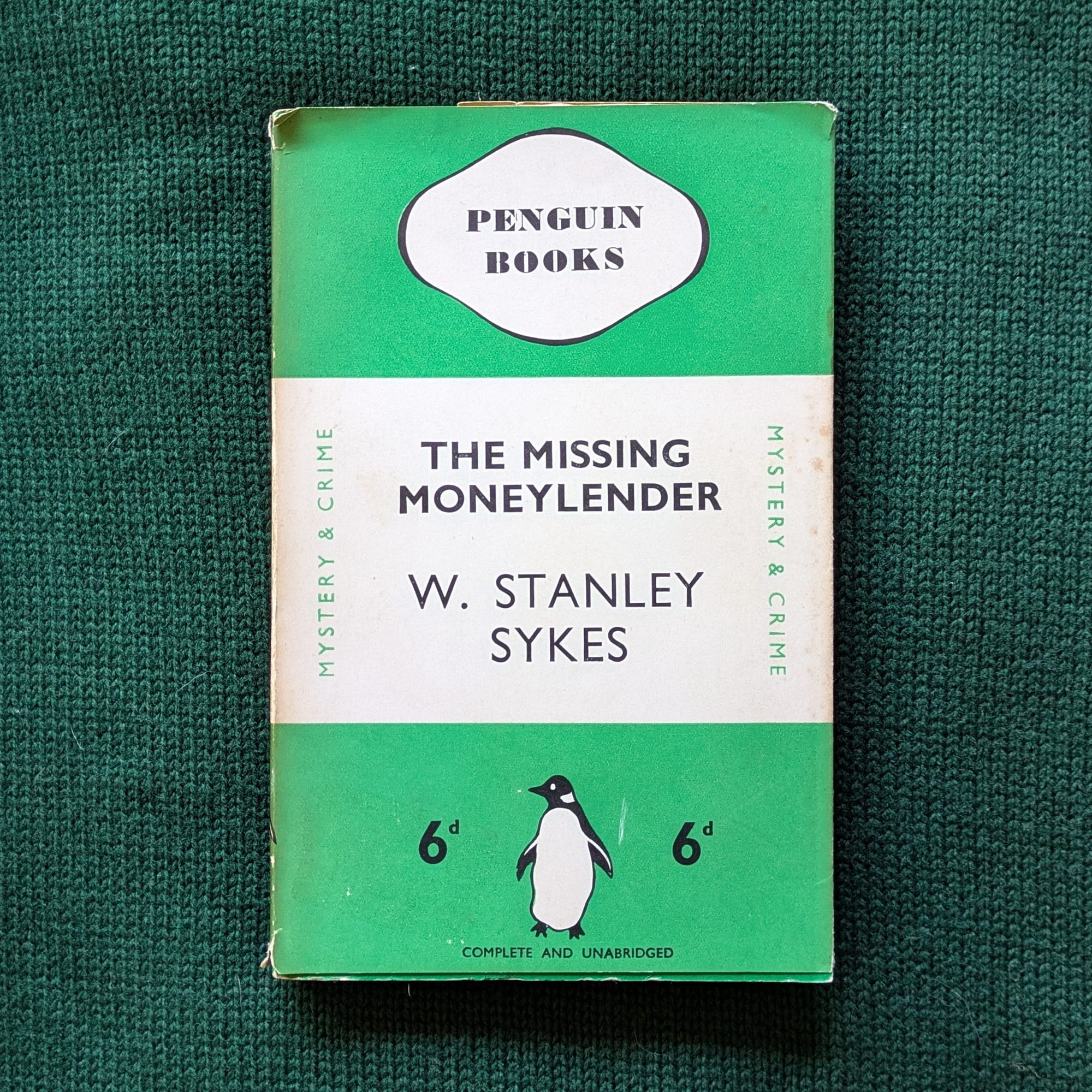
The Missing Moneylender by W. Stanley Sykes
Continuing with the medical mysteries, I read this book for the Green Penguin Book Club strand on Shedunnit: the full discussion about it is available to listen to here. I went into this book with great trepidation because the presence of the word "moneylender" in the title combined with the 1931 publication date and the fact that this book has never been reprinted rang serious alarm bells for antisemitism.
I was surprised and relieved, then, to find that apart from a few lines of egregious description (sadly not uncommon in crime fiction in this era), my fears were not realised. This is a competent and well-structured early police procedural that shows the influence of Freeman Wills Crofts and has a medical thread running through it — the author was a doctor. Apart from in the odd secondhand Penguin edition, this book is very hard to track down, but if you do ever come across it in a charity shop or similar for a reasonable price, it would be worth buying.
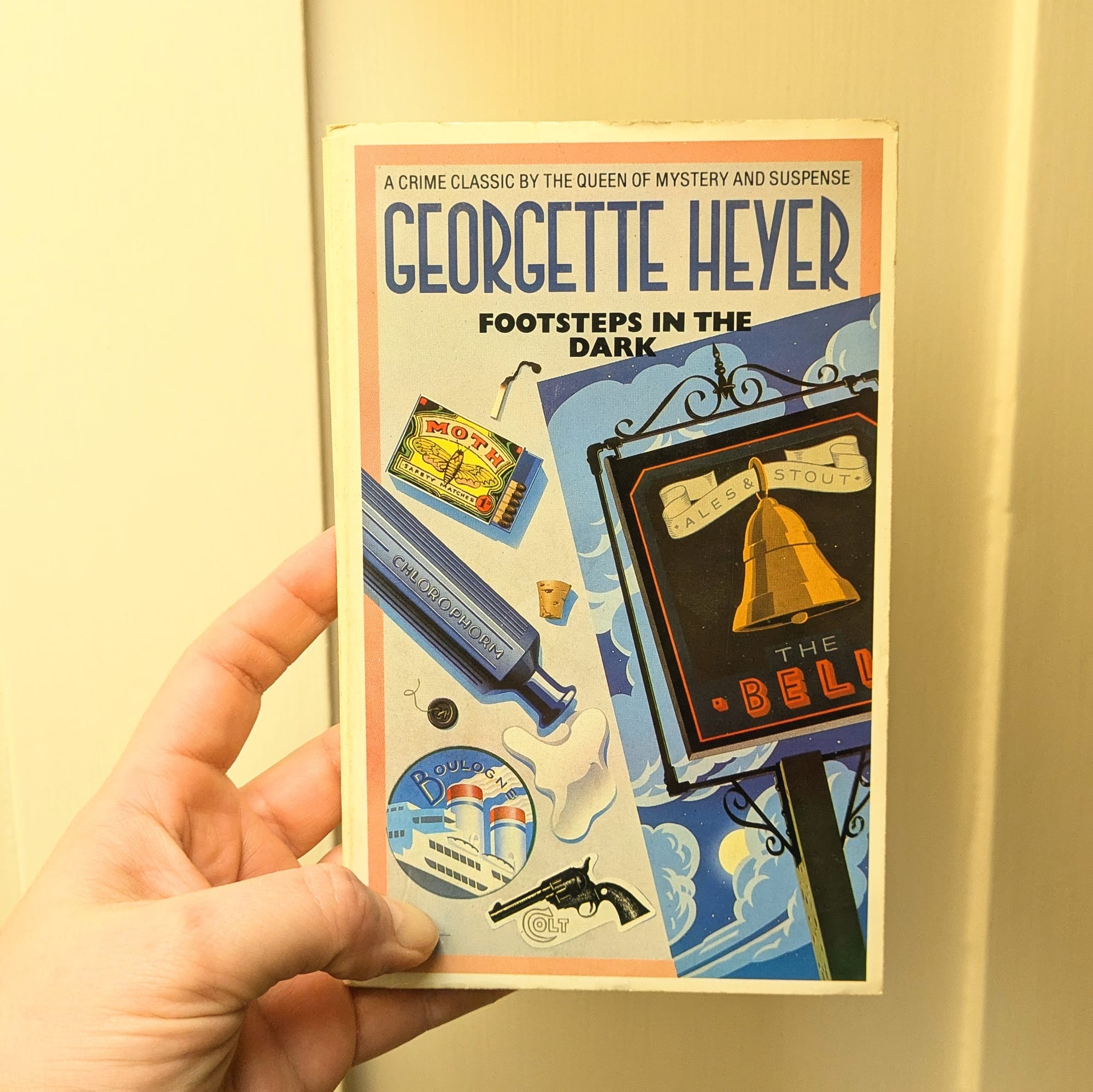
Footsteps in the Dark by Georgette Heyer
Get used to this: I'm embarking on one of my "read all her detective fiction" projects with Georgette Heyer this year, so there will be at least one of her mysteries in each of these monthly updates. I began with this one from 1932, her first detective novel. She was already well under way with her historical fiction, although so far it had mostly been Georgian-era; the Regency stuff she's best known for today didn't come until 1935.
The tone of Footsteps in the Dark is light and amusing, centred around three siblings who have inherited a spooky old country house supposedly haunted by a ghostly monk. Along with a barrister brother-in-law and a clueless maiden aunt, they move in and proceed to be terrorised by ghosts, skeletons and local vacuum cleaner salesmen. I'd say this just about qualifies as a detective novel rather than a thriller because the characters do consciously decide to "investigate the case", but Heyer isn't especially interested in detailed plotting or fair play conventions. Instead, she writes sparkling dialogue and funny scenes, resulting in a quick and entertaining reading experience.
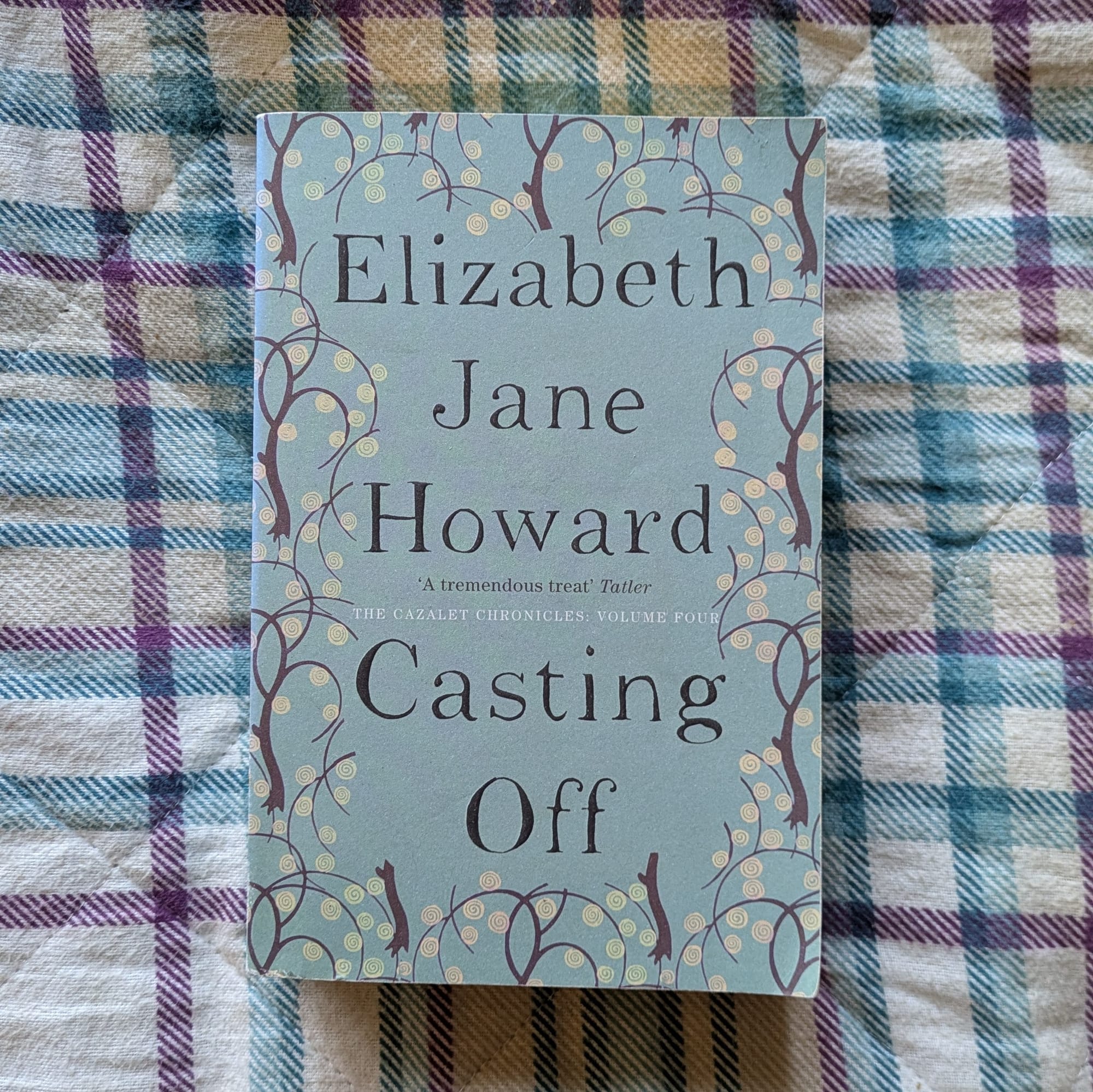
Casting Off by Elizabeth Jane Howard
The fourth volume in the Cazalet Chronicles, which I have been spacing out since I first fell in love with the series last year. This one is firmly post WW2, and sees the "false Edwardian domestic ideal" (as I called it back in September when reviewing the third book) fully break down. The idyllic yet difficult days at Home Place have come to an end with the death of the patriarch — interestingly not dwelt on or even described by Howard — and the family has largely moved back to London to pick up some semblance of normal life.
Louise, in her unhappy marriage to a mother's boy/society portrait painter, continues to be the most heartbreaking character in my opinion, but honestly so many awful things have happened to the women in this series by now that even when there are nice developments I assume that it won't be long before Howard causes them to turn sour. I still love reading it, though, and will wait as long as I can before reading the fifth and final volume so as to eke out this experience of reading the full series for the first time. I will not be engaging with the literary cash-grab sequels recently announced by Howard's niece.
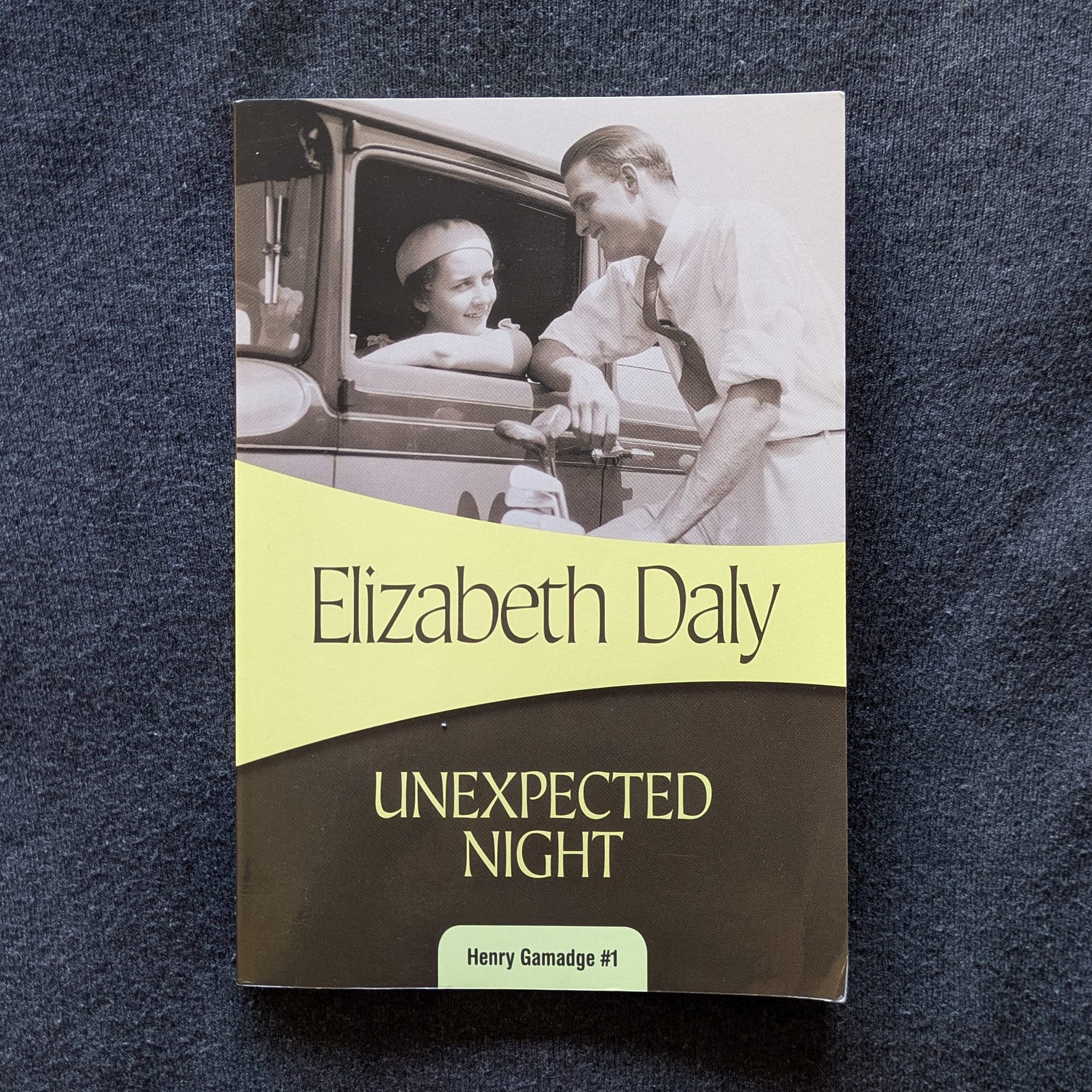
Unexpected Night by Elizabeth Daly
For all that I know quite a bit about British interwar crime fiction, I am fairly clueless about the American equivalent (cf. me only getting around to reading The Thin Man for the first time last year). Elizabeth Daly, a New York writer who published this first crime novel in 1940 when she was 60, was previously an unknown name to me. Her series detective, Henry Gamadge, appears occasionally on lists of "bibliophile" sleuths and being a fan of that subgenre, I decided to give him a try.
I found Unexpected Night to be delightful: it's a highly competent and promising debut novel. It concerns an inheritance plot surrounding a wealthy but very unwell young man, who will only have the power to make a will leaving the fortune as he desires if he makes it to his twenty-first birthday. His family are therefore trying to wrap him in cotton wool so he can last long enough to enrich them, whereas he would like to live life a little and indulge his interest in theatre. When he is found dead just a few hours into his birthday, suspicions are naturally aroused.
My one difficulty with this book was working out where it is set, as Daly doesn't make this explicit for a non-American reader coming to her story 85 years late, but I eventually pinned it down as a coastal Maine holiday resort popular with rich New Yorkers. I will certainly be looking out for more of Henry Gamadge's adventures.
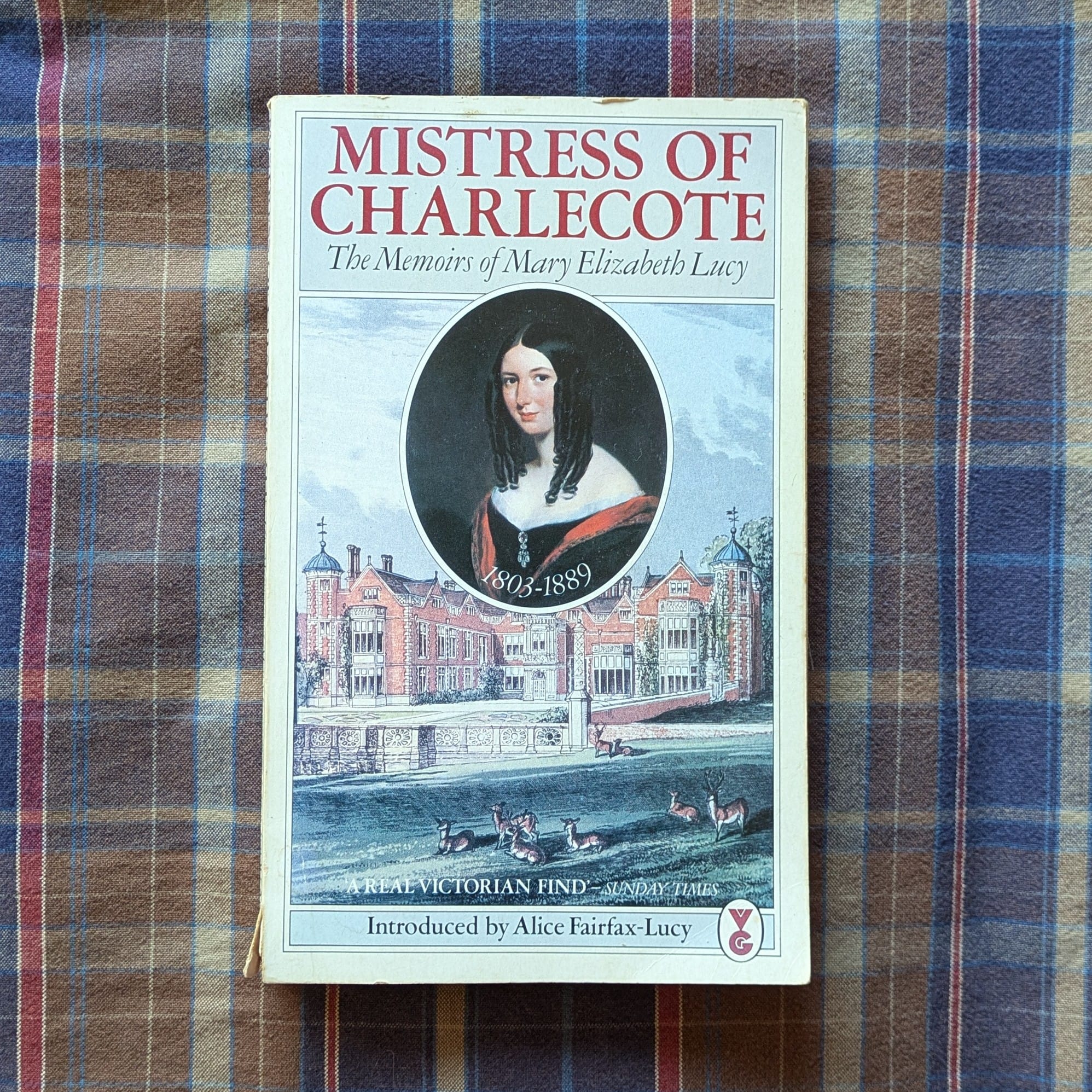
Mistress of Charlecote by Mary Elizabeth Lucy
A friend who is engaged in a serious decluttering and downsizing project periodically sends a list of books via email that he is getting rid of, asking if we would like them. We try not to take them all because of the aforementioned SABLE problem with physical books in this house, but I do enjoy the serendipity of getting to choose from someone else's carefully-curated collection. This book came in one of the batches we picked up last year, and I would never have known it existed otherwise.
It's the memoirs of a wealthy woman who lived in interesting times, as they say. She was born in 1803 in Wales and died in 1889 in Warwickshire, having outlived her husband and most of her siblings and children. She wasn't important to history or politics, but as one source puts it: "Her life could have been drawn from an Austen novel." At the age of 20 she was married off against her will to the heir to a crumbling Midlands estate. She participated in the London season, met various monarchs including Queen Victoria, oversaw the deaths and marriages of her children, travelled around Europe, and witnessed the waning fortunes of the English landed gentry.
Judging by the recollections she chose to set down, she wasn't a particularly deep or philosophical thinker, but the observations she did record about her life are interesting for their own sake. I devoured this book in a couple of days, completely hooked on the peculiar blend of privilege and hardship that made up the plight of a wealthy nineteenth-century woman. As an added point of interest, the memoirs were edited for publication by Alice Fairfax-Lucy, daughter of John Buchan, who married Mary Elizabeth's great-grandson and thus became in the 1930s the mistress of the titular country house, Charlecote. Except Charlecote was by then in serious decline, so Alice's afterword details the classic "death of the country house" narrative which nicely rounds off the story from the century before.
That was my reading for January: eight books, a decent beginning as I aim for 120 in 2025. If you would like to follow along in real time, you can see what I'm reading at any given moment on the Storygraph. I just use that as a tracker, though, I don't publish any reviews there.
Member discussion